
Hiroshima After 75 Years
Hiroshima – Visit 4 years ago Hiroshima The drop of the first atomic bomb, code-named Little Boy, by American warplanes — and another, code-named Fat Man, three days later in
Search engine optimisation is a must-have marketing strategy for businesses seeking to acquire customers and grow their brands. However, it can be challenging to manage if you don’t compare SEM vs SEO.
While the strategies sound similar, they are very different. You can’t provide a straightforward and successful approach for improving your search exposure if you mix up SEM with SEO and don’t comprehend the differences.
This article will assist you in understanding their meaning. You’ll also discover SEO and SEM concepts and ways to improve your search exposure and performance.
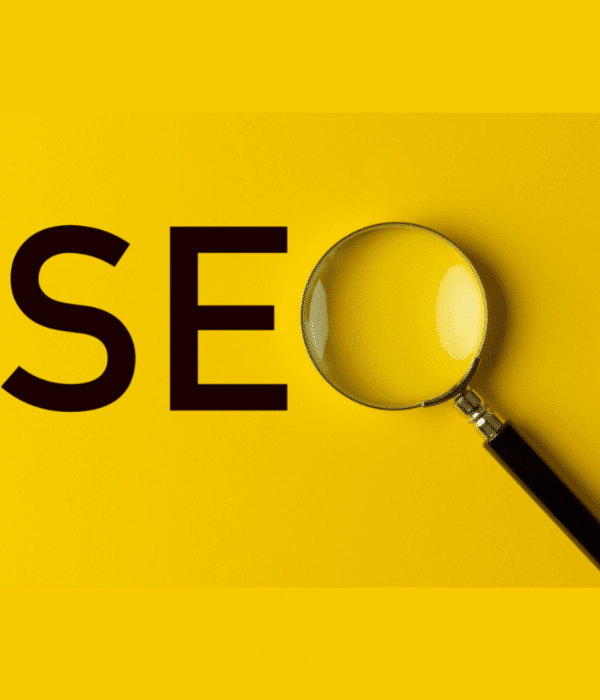
I want to help you, and this begins with my clients learning the vocabulary for this type of marketing before designing a comprehensive search optimisation strategy. So let’s start from the beginning.
Search marketing refers to any strategy that aids a brand’s visibility on search engine results pages (SERPs). It comprises efforts to improve search ranks and exposure to attract traffic to a website or individual web pages.
SEM, which uses PAID techniques to appear in search, and SEO, which uses ORGANIC strategies to appear in search, are the two critical categories under search marketing. The main distinction between SEM and SEO is that SEM is a paid approach, and SEO is an organic strategy.
The definitions of search marketing have evolved, as have most things in the search industry. Some marketers think of SEM as a catch-all word encompassing paid and organic techniques. However, we advocate categorising the terms to make your marketing strategy more transparent.
Always define language before dealing with search partners because these terms might be interchangeable and mean different things to various marketers. Then, discuss the definitions with your marketing partners to ensure that everyone is on the same page regarding the strategy.
Because the SEM definition is so broad, it incorporates several factors ( see the above infographic). But it’s compensated chiefly approaches. So, for example, SEM uses paid search engine ads to reach potential buyers at the right time and place.
That’s SEM. This term is used for any search marketing.
Due to the paid search strategies used, SEM is generally referred to as PPC.
So, is PPC the same as SEM? Yes, it is. PPC is the same as SEM.
But it goes by many names. Make a note of them to answer the question, “what is SEM?” They are interchangeable. Also, you may know more about SEM than you realise.
It’s also known as
Depending on your objectives and the ad tool, you may wish to pay to be seen by those searching for products or services.
What is SEO vs SEM? For example, SEO is the practice of attracting traffic to your website through organic search engine results.
Search engine optimisation is abbreviated as SEO.
It optimises your website for organic (unpaid) traffic from search engines.
What influences SEO? There are various benefits to employing SEO for your organisation. First, you may improve your SEO to improve your search engine presence. This enables you to engage more potential customers. Second, you can attract more targeted organic visitors by developing more engaging and effective SEO-focused content.
Google’s algorithm ranks the search results. Years of SEO experience have given us a strong knowledge of the essential ranking elements. The factors in Google’s algorithm fall into two sections:
On-page SEO factors your website ranking is determined in part by on-page factors. On-page SEO factors are all things you can control from within your website. These factors include technical aspects (for example, the quality of your code and site speed) and content-related aspects (for example, the structure of your website or the quality of the copy on your website). All of these are essential on-page SEO factors.
Off-page SEO factors Off-page SEO factors exist in addition to on-page SEO factors. BackLinks from other websites, social media attention, and other marketing activities outside your website are examples of these factors. Off-page SEO factors can be challenging to manipulate. The number and quality of links pointing to your site are the most important of these off-page factors—the more high-quality, relevant sites that link to your website, the higher your Google ranking.
Another off-page factor to consider is your competition in the niche of your particular business. Some niches are much more challenging to rank in than others. As a result, the competitiveness of your market has a significant impact on your chances of ranking.
Holistic SEO At Yoast, we use a technique known as ‘holistic SEO.’ This implies that your primary goal should be to create and maintain the best website possible. Don’t try to fool Google; instead, employ a long-term sustainable strategy. If your website is of exceptional quality, the ranking will come naturally. As part of its mission to index all of the world’s online information and make it universally accessible and helpful, Google wants to direct its users to the right place.
Aside from that, Google, of course, wants to make money. To accomplish this, your brand must continue to use Google. Google always is looking to provide its users with the best outcomes they are searching for. For a best in industry, website Google will want it to appear near the top of the search results.
To permanently rank well in Google, your site necessitates a comprehensive SEO strategy that addresses every aspect of your website and its marketing. The technical aspects, the User eXperience (UX), and the content on your website must all be excellent. To maintain a high Google ranking, you should implement a holistic SEO strategy.
While SEO ranks a website in organic search results, SEM uses a pay-per-click strategy to show text advertising above organic search results.
Assume you are a marketing executive for a B2B Premium Skincare supplier.
Your website must rank highly in both sponsored and organic search results to be seen and potentially gain clients at this vital time. In addition, your website must rank high in paid search results, organic search results, or both to get seen and potentially attract clients at this important point. The Difference between SEO Vs SEM
To appear in sponsored search results, you must use Google AdWords. Then, within a day, your company website ranks in the top four spots on Google when a potential consumer searches for phrases like “organic food providers.” Because Google AdWords costs per click (PPC).
You realise that if additional competitors bid for the same target keywords, you may not be able to keep your budget in place.
You decide to invest in SEO to improve your website’s ranking in organic search results.
Both SEO and SEM are subsets of digital search marketing coexisting in the same search channel. We pay for SEM traffic but not for SEO traffic.
Having said that, here is a comparison between SEO and SEM.
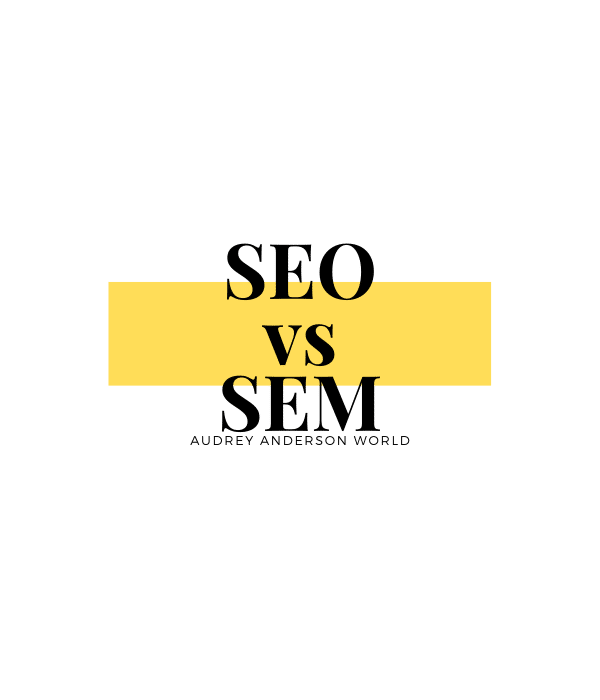
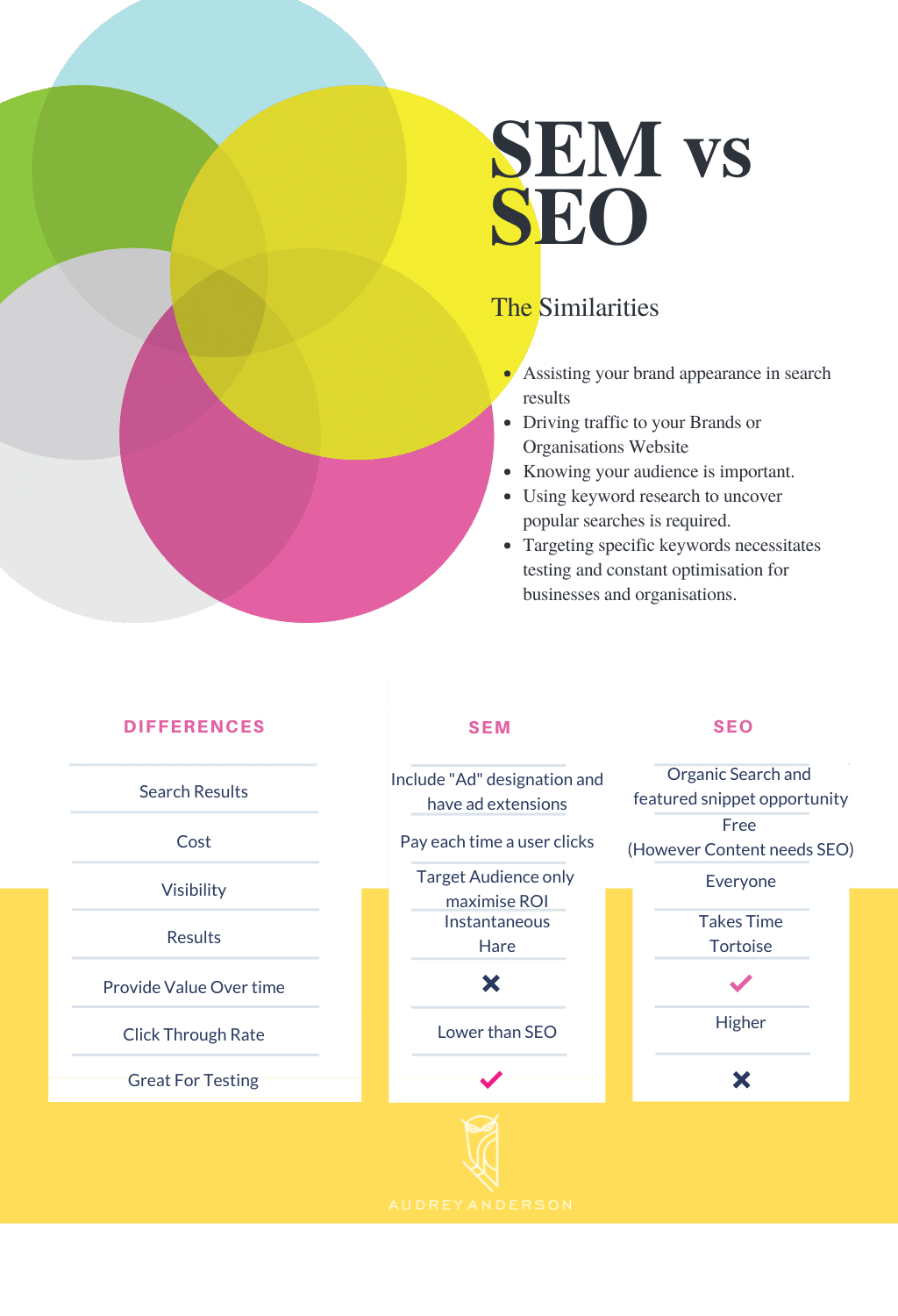
Both SEO and SEM are intent-based marketing and coexist on the search channel.
Being featured in SEM or SEO search results increases brand awareness regardless of clicks.
Both require knowing your target demographic. To be effective with any approach, you must first understand your target audience. For example, using buyer personas and psychographic segmentation might help you know your target market. Then you may create relevant material that surfaces when people search for solutions.
Both employ keyword research to find popular search terms. The first step in SEM and SEO is to study keywords. Using keyword popularity to determine your ideal audience’s top keywords is part of the research. It also involves analysing keyword competition to see what other firms are doing to target the same terms as you.
Both target keywords. Both strategies target keywords uncovered during keyword research. Each method revolves around keywords.
Both require testing and optimisation. Remember that neither SEM nor SEO is a one-and-done strategy. Both require constant testing, monitoring, and tweaking.
You’ll be able to pick which strategy is best for your marketing strategies now that you’ve compared SEM vs SEO. Using what your experienced Digital Marketing Agency like Audrey Anderson World knows and consider following their advice when deciding which is best for your brand.
Think about your competition. Before you determine how to compete with them, look at what your competitors are doing and how they are performing in search marketing. Next, investigate the search terms on which they rank organically. Next, consider whether you can carry out a strategy to outperform their SERP placements. Finally, examine the purchased words they’re employing to bring traffic to their sites. Look for holes that you can fill and areas where you will be unable to compete in both sponsored and organic searches when you conduct your research.
This competitive analysis form may help you understand how you compare to the competition in search and identify areas for growth.
Using Ahrefs or Ubbersuggest, Enter up to ten of your competitors to see the top organic and sponsored search terms driving traffic to their websites.
Think about how well you know your industry. If you’ve been in the company for a while and already know what your customers want and how to reach them, you might want to start developing a long-term SEO plan that will deliver value over time. If you are unsure how customers or competitors will react to your goods or content, you should consider an SEM campaign that allows you to test your ideas, products, and services. Use these websites for market research better to understand your target audience and your industry position.
Consider the length of your average customer’s purchasing cycle. If your products and services have a quick customer buying cycle, which means that your consumers know what they want, search for it, and buy it, you may benefit from SEM advertisements that place your product precisely where customers will see it. On the other hand, longer buying cycles, in which clients research and compare for weeks or months, may not perform well with SEM because there is no quick purchase after seeing one ad.
Consider the industry’s average cost-per-click. Before selecting whether SEM is suitable for your company, do your homework and calculate how much you’ll need to spend to appear in paid search results. The cost-per-click for keywords varies according to competition. It may be the best method for you if your cost-per-click is cheap. On the other hand, an extremely high cost-per-click may lead you to believe that you would be better off focusing on SEO.
Consider the age of your company. For Startups who have recently started their business and established your website, it will take some time to improve your SEO and begin to appear naturally in search results. While this does not preclude you from developing an SEO plan, it implies that you may profit from an SEM approach while working on your SEO. SEM is an excellent approach to boosting visitors while improving your organic SEO.
Consider your website’s current state. When developing a marketing strategy, search for “low-hanging fruit” or changes that will have the most significant impact with the least amount of effort. So, before you launch a search marketing campaign, look at your website to see where you might be able to expand an organic SEO approach that is already working before investing in an SEM campaign.
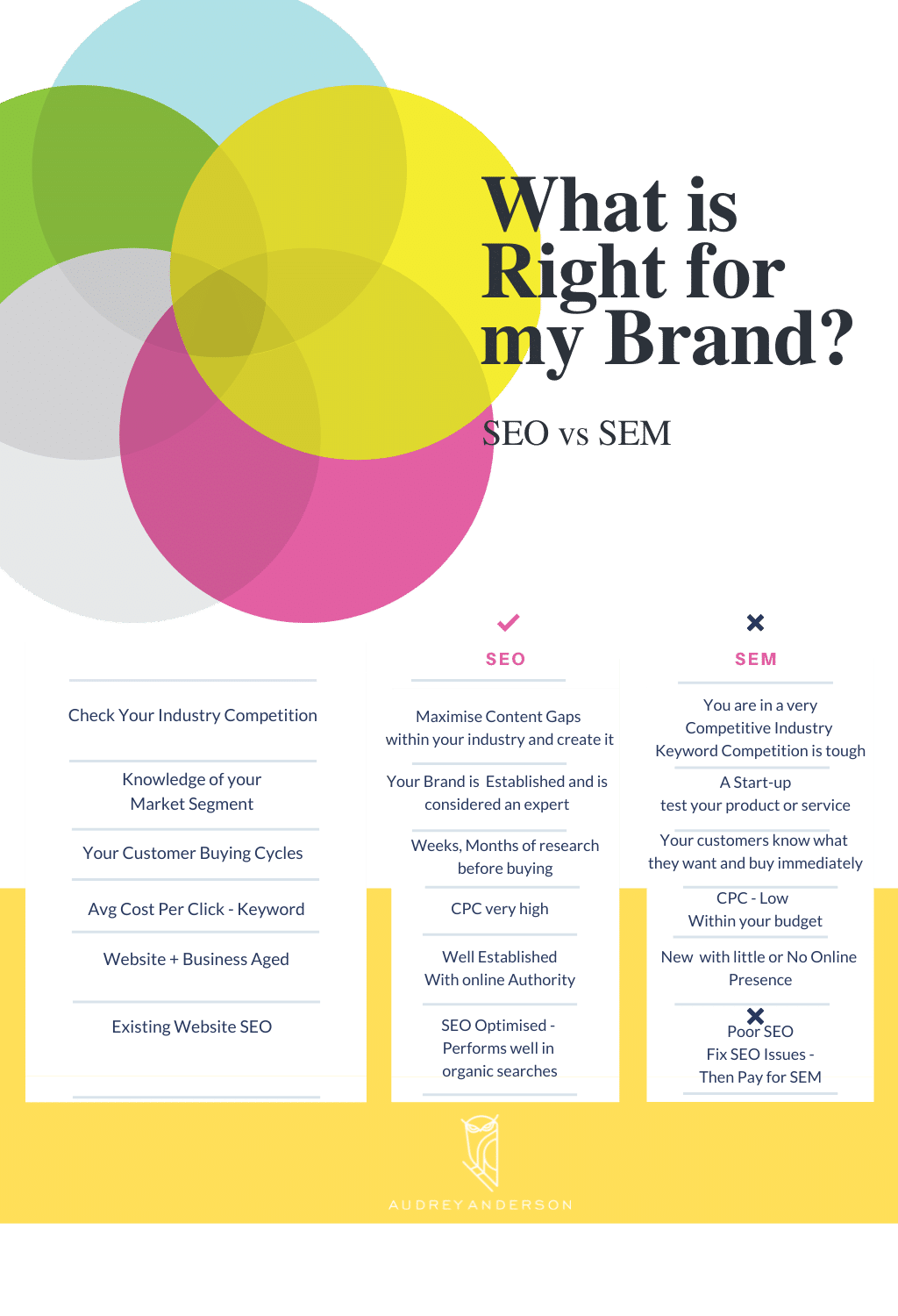
Please show me the money! That is marketing’s raison d’être!
Google has proof that Bing, Baidu, Yandex, and the rest are profitable places to place search ads. Google claims that businesses can double their AdWords spend!
While most marketing strategies aim to make money, other conversions should not be disregarded. For example, marketing campaign goals like new subscribers, email signups, or contest participants are all examples of conversions.
In search engine results, ads display first. Therefore, ads on paid search can get you to the top of the SERPs (ad section) if your keyword bid is high and your quality score is good.
In contrast to SEO and other forms of online marketing, SEM can give quick results.
A regular web traffic source is essential for maintaining visibility and sales and planning, forecasting, and budgeting. Unfortunately, traffic fluctuations are common and generally inexplicable. Search advertisements can help you regulate the amount of traffic arriving on your site at any moment and help you produce constant traffic for selected keywords.
While SEM is frequently considered a bottom-funnel marketing channel, it can also help build brand awareness. For example, Google claims that search ads can raise brand recognition by 80%.
Affordability is a significant concern with sponsored search advertising. However, as shown by Google’s data in argument #1, you should quadruple your investment in AdWords if managed well. So ROI is possible no matter what.
SEM is a must-have tool for increasing website traffic and conversions if you’re a local marketer. Local marketing connects local businesses with the communities they serve.
Sure, increasing traffic isn’t the only benefit of SEM. One of the main advantages of search ads is targeted traffic. You can’t always control who sees your organic search results, but with SEM, the ability to target a particular demographic that is more likely to view and engage with your advertisements. PPC search advertising allows you to target specific demographics and visitors at any sales funnel stage, making them more qualified than organic SEO traffic.
I would always encourage my Client to look at SEO now and in the future?
Always starting with a successful SEO strategy can result in a LOT of visitors. Your site will get a lot of organic visitors if it ranks well in Google.
Organic search results have a considerably greater click-through rate than Google ads. For example, organic search generates 53% of website traffic, while paid search generates 27%.
Because many users (25,8%) use ad blockers and don’t see Google ads, the ‘normal’ search results may be more relevant to the search query.
SEO provides a good Return on Investment. Of course, you need to develop killer content, undertake keyword research, and optimise your internal linking structure. But any SEO effort pays dividends! SEO offers a good ROI (ROI). SEO not only has a better average conversion rate, but it is also a long-term investment.
While you will need to update your content from time to time, you will not be charged to keep it in the search results. If your content is good and your website is easy to use, Google will show it in the results. This means you’ll get a return on investment for a long time.
Once your SEO onsite and offsite are banging, I would follow up by recommending looking at SEM for my clients.
I hope you enjoyed this read, and if you need further information, please don’t hesitate to send me an email.

Hiroshima – Visit 4 years ago Hiroshima The drop of the first atomic bomb, code-named Little Boy, by American warplanes — and another, code-named Fat Man, three days later in
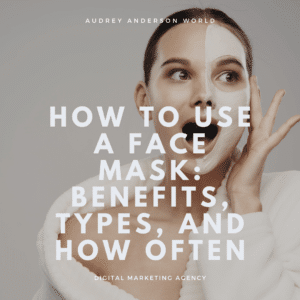
how often should you use a face mask- Skincare Routine for Acne, Wrinkles, and More How often should you use face masks? How often should you use face masks in

The Importance of Google Voice Search – For Brands Digital MarketingVoice Search Optimization – The Best Ways To Optimise Your Site Google Voice Search is becoming more intelligent than ever

Digital Marketing Concepts that were outrageous and revolutionary were artificial intelligence ideas, marketing powered by data and optimising voice search engine optimisation (VSEO).

Google Adwords Latest Update: 9 Google Adwords Updates You’ll Need to Be Aware Of Adwords is one of the most popular advertising platforms for marketers. It’s used by businesses everywhere
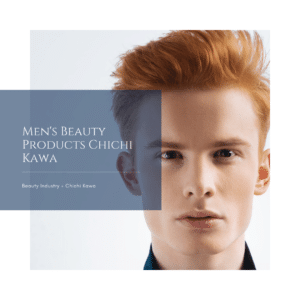
A Guide to Mens Beauty Products + Genderless Cosmetics Mens Beauty Products – Your skincare routine can be as complicated as you want it to be. Still, there is a
